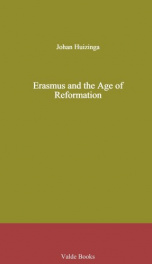Huizinga Johan

Johan Huizinga (Dutch pronunciation: [joːhɑn hœyzɪŋxaː]) (December 7, 1872 - February 1, 1945), was a Dutch historian and one of the founders of modern cultural history. Born in Groningen as the son of Dirk Huizinga, a professor of physiology, and Jacoba Tonkens, who died two years after his birth,[1] he started out as a student of Indo-Germanic languages, earning his degree in 1895. He then studied comparative linguistics, gaining a good command of Sanskrit. He wrote his doctoral thesis on the role of the jester in Indian drama in 1897. It was not until 1902 that his interest turned towards medieval and Renaissance history. He continued teaching as an Orientalist until he became a Professor of General and Dutch History at Groningen University in 1905. Then, in 1915, he was made Professor of General History at Leiden University, a post he held until 1942. From this point until his death in 1945 he was held in detention by the Nazis. He died in De Steeg in Gelderland, near Arnhem, and lies buried in the graveyard of the Reformed Church at 6 Haarlemmerstraatweg in Oegstgeest.[2] Huizinga had an aesthetic approach to history, where art and spectacle played an important part. His most famous work is The Autumn of the Middle Ages (a.k.a. The Waning of the Middle Ages) (1919). He here reinterprets the later Middle Ages as a period of pessimism and decadence rather than rebirth. Worthy of mentioning are also Erasmus (1924) and Homo Ludens (1938). In the latter book he discusses the possibility that play is the primary formative element in human culture. Huizinga also published books on American history and Dutch history in the 17th century. Alarmed by the rise of national-socialism in Germany, Huizinga wrote several works of cultural criticism. Many similarities can be noted between his analysis and that of contemporary critics such as Ortega y Gasset and Oswald Spengler. Huizinga argued that the spirit of technical and mechanical organisation had replaced spontaneous and organic order and cultural as well as political life. Huizinga's son Leonhard Huizinga became a well known writer in the Netherlands, especially renowned for his series of tongue in cheek fiction novels on the Dutch aristocratic twins Adrian and Oliver ("Adriaan en Olivier").
do you like this author?
What readers are saying
What do you think? Write your own comment on this book!
write a commentWhat readers are saying
What do you think? Write your own comment on this author!
write a commentBook list

Herfsttij der Middeleeuwen
Studie over levens- en gedachtervormen der veertiende en vijftiende eeuw in Frankrijk en de Nederlanden
Series:
Unknown
Year:
Unknown
Raiting:
2.5/5
Show more
add to favoritesadd In favorites

Erasmus and the Age of Reformation
Series:
Unknown
Year:
Unknown
Raiting:
4.5/5
Works of Johan Huizinga, a Dutch historian and one of the founders of modern cultural history, became world-renowned. In his” Erasmus and the Age of Reformation” (1924) the author appears a widely educated, bright and multifaceted person, devoted to his moral and scientific duty. This book inquires into the life and work of Erasm Roterodamus, one of the dominant influences of the Age of Humanism. Revealing complicated, conflicting nature of Erasm, the author expounds either his own humanistic ideas.
Show more
add to favoritesadd In favorites
Book list

Herfsttij der Middeleeuwen
Studie over levens- en gedachtervormen der veertiende en vijftiende eeuw in Frankrijk en de Nederlanden
Series:
Unknown
Year:
Unknown
Raiting:
2.5/5
Show more
add to favoritesadd In favorites

Erasmus and the Age of Reformation
Series:
Unknown
Year:
Unknown
Raiting:
4.5/5
Works of Johan Huizinga, a Dutch historian and one of the founders of modern cultural history, became world-renowned. In his” Erasmus and the Age of Reformation” (1924) the author appears a widely educated, bright and multifaceted person, devoted to his moral and scientific duty. This book inquires into the life and work of Erasm Roterodamus, one of the dominant influences of the Age of Humanism. Revealing complicated, conflicting nature of Erasm, the author expounds either his own humanistic ideas.
Show more
add to favoritesadd In favorites
What readers are saying
What do you think? Write your own comment on this author!
write a commentif you like Huizinga Johan try:
readers also enjoyed
What readers are saying
What do you think? Write your own comment on this author!
write a commentif you like Huizinga Johan try:
readers also enjoyed
Do you want to exchange books? It’s EASY!
Get registered and find other users who want to give their favourite books to good hands!

